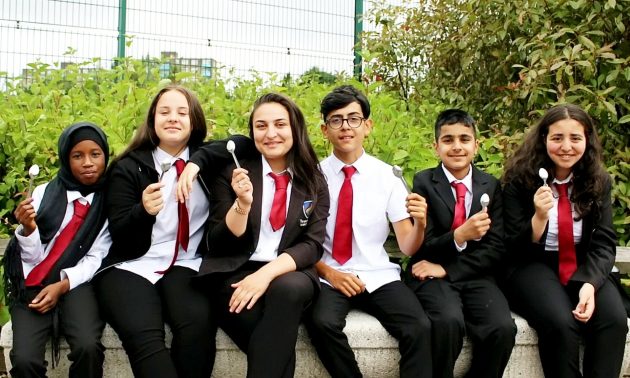A British school has devised a method to foil their students being forced in child marriage when they return overseas for holidays. Quote.
Students at the Co-operative Academy of Leeds have been encouraged to alert authorities by putting a spoon in their underwear to trigger metal airport detectors. Children at the inner-city secondary in Harehills an area with one of the city’s largest south Asian populations have been given a metal spoon as part of a scheme designed to raise awareness about honour-based abuse and forced marriage.
The school is aware that some children will not return to school after the summer holidays. July is typically the busiest month for the government’s Forced Marriage Unit as families take their daughters (and sons) abroad to get married, free from the restrictions presented by the school term. end quote
The Guardian
This is a most unfortunate aspect of East meets West. quote
David Myers, joint head of the unit, praised the technique but said it was not a bulletproof method and called for communities to help with early intervention. We advocate early prevention, working within these communities, to speak with these children before they even reach the airport, he said. We want them to know that help is available to them.
Of the 1,196 reports of possible forced marriage cases handled by the unit last year, more than a quarter involved victims below the age of 18, while one in five related to male victims. The four countries with the highest number of cases last year were Pakistan (439), Bangladesh (129), Somalia (91) and India (82). The biggest shift occurred in Somalia, where the number of cases increased by more than 100% year-on-year.
Nazreen (not her real name), who is now 36, was born into an Afghan family in West Yorkshire. Her parents arranged her marriage when she was born. Aged 13, she returned home from school to an engagement party with a 19-year-old man she had never met.
Up until about nine, I had the average childhood, I was a bit of tomboy. However, the minute I started puberty it all changed. My mother was the main perpetrator, telling me that I was growing up and I was a woman now. I was withdrawn from my mainstream school and sent to an all-girls faith school: my mother told me that where I was going I didn’t need an education.
Nazreen was told that she would be marrying a 19-year-old cousin from Afghanistan. The engagement took place. I took two overdoses in the hope that someone in the hospital would recognise what was going on but they didn’t. That’s when I decided to run away. I couldn’t believe this was happening to me, she said.
Eventually, after contacting Childline, I ended up in care and was made a ward of court to stop my family. I was so scared. The thing I kept thinking was, Why me, why raise me in Britain but want me to conform like this?
Harinder Kaur, the social, culture and ethos leader at the academy, said that in her eight years at the school she knew a few girls who had disappeared during the school holidays, and one who came back pregnant after being forced into a marriage abroad. This is happening to children and we need to act to protect them. As educators, we have a responsibility to empower children with the knowledge and ability to make a difference to their own lives and the lives of others,she said.
A recent Guardian investigation revealed that more than 3,500 reports of forced marriage were made to police in three years. In May, a woman from Birmingham was jailed for four-and-a-half years for duping her 17-year-old daughter into travelling to Pakistan and forcing her to marry a man 16 years her senior.

